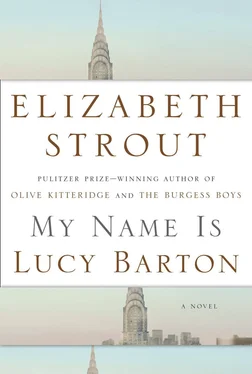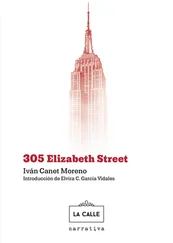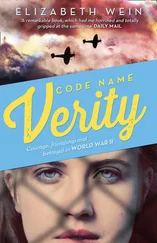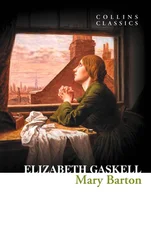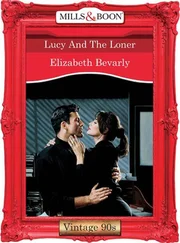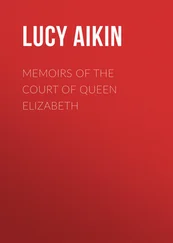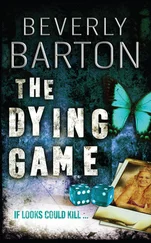And I remembered this: that he was interested in what he was watching. He had an interest in it. What did he think of those Indians who were dancing?
—
I said suddenly, as the lights started to come on throughout the city, “Mommy, do you love me?”
My mother shook her head, looked out at the lights. “Wizzle, stop.”
“Come on, Mom, tell me.” I began to laugh, and she began to laugh too.
“Wizzle, for heaven’s sake.”
I sat up and, like a child, clapped my hands. “Mom! Do you love me, do you love me, do you love me?”
She flicked her hand at me, still looking out the window. “Silly girl,” she said, and shook her head. “You silly, silly girl.”
I lay back down and closed my eyes. I said, “Mom, my eyes are closed.”
“Lucy, you stop it now.” I heard the mirth in her voice.
“Come on, Mom. My eyes are closed.”
There was a silence for a while. I was happy. “Mom?” I said.
“When your eyes are closed,” she said.
“You love me when my eyes are closed?”
“When your eyes are closed,” she said. And we stopped the game, but I was so happy—
—
Sarah Payne said, If there is a weakness in your story, address it head-on, take it in your teeth and address it, before the reader really knows. This is where you will get your authority, she said, during one of those classes when her face was filled with fatigue from teaching. I feel that people may not understand that my mother could never say the words I love you. I feel that people may not understand: It was all right.
It was the next day in the hospital — Monday — when Cookie said I needed just one more X-ray; it would be simple, she said, they’d be up to get me soon. Within an hour I was back in the room. My mother wiggled her fingers at me, and I wiggled mine back once I returned to my bed. “Piece of cake,” I said to her. And she said, “You’re a brave girl, Wizzle-dee.” She looked out the window, and I looked out the window too.
We must have spoken more, I’m sure we did. But then my doctor came in hurriedly and said, “We might have to take you to surgery. You may have a blockage, I don’t like what I see.”
“I can’t, ” I said, sitting up. “I’ll die if I have surgery. Look how skinny I’ve gotten!”
My doctor said, “Except for being sick, you’re healthy and you’re young.”
My mother stood up. “It’s time for me to go home,” she said.
“Mommy, no, you can’t!” I cried.
“Yes. I’ve been here long enough, and it’s time I go home.”
My doctor had no response to my mother’s remark. I remember only his determination to get me to the next test to see if I needed surgery. And while I would stay in the hospital for almost five weeks more, he never asked me about my mother, if I missed her, never said that it must have been nice to have her there, not one thing about her did he say. And so I never told this kind doctor how I missed her terribly, that her coming was — well, I couldn’t have said what it was. And I didn’t say anything about it at all.
So my mother left that day. She was frightened about how she would find a cab. I asked one of the nurses to help her, but I knew that once she reached First Avenue, no nurse would be able to help her. Already two male orderlies had brought the gurney into my room, and the bed rail was taken down. I told my mother how to raise her arm, how to say “La Guardia” as though she said it often. But I could see that she was terrified, and I was terrified too. I have no idea if she kissed me goodbye, but I cannot think she would have. I have no memory of my mother ever kissing me. She may have kissed me though; I may be wrong.
I have said that at the time I am writing about, the AIDS disease was a terrible thing. It’s still a terrible thing, but people are used to it now. Being used to it is not good. But when I was in the hospital, the disease was new and no one yet understood how to keep it in abeyance, and so on the door of a hospital room in which a person had this illness would be a yellow sticker, I can remember them still. Yellow stickers with black lines. When I later went to Germany with William I thought of the yellow stickers in the hospital. They did not say ACHTUNG! But they were like that. And I thought of the yellow stars the Nazis made the Jews wear.
My mother had left so quickly, and I had been taken away on a gurney so quickly, that when I was suddenly brought out of the big elevator and parked by a wall in a hallway on a different floor, it was surprising to me that I was left there for so long. But what happened is this: I was left in a place where I could see across the hall to a room with that terrible yellow sticker on the partly opened door, and I saw a man with dark eyes and dark hair in the bed, and he was, it seemed to me, staring at me every second. I felt terrible that he was dying, and I knew that dying that way was a terrible death. I was afraid of dying, but I did not have his illness, and he had to know that — they would not have left a patient in the hallway like they left me there, had I had that illness. I felt in this man’s gaze that he was begging me for something. I tried to look away, to give him privacy, but each time I glanced at him again he was still staring at me. There are times still I think of those dark eyes in the face of the man lying on that bed, peering at me with what in my memory I think of as despair, begging. I have since then — it’s natural as we get older — been with people as they died, and I’ve come to recognize the eyes that burn, the very last of the body’s light to go out. In a way that man helped me that day. His eyes said: I will not look away. And I was afraid of him, of death, of my mother leaving me. But his eyes never looked away.
I did not have more surgery. Again my doctor said that he was sorry to have frightened me, but I only shook my head to let him know that I knew he loved me in his doctor-way and that he had only been trying to keep me alive. Every Friday he said what my mother had heard him say, “Have a good weekend, then, if you can.” And every Saturday and every Sunday he would show up, saying he had another patient to check on and he was stopping by, therefore, to check on me as well. He only did not come on Father’s Day. I was so jealous of his children! Father’s Day! I have never met his children, of course. I heard that his son became a doctor, and later — a few years later, when I saw him in his office and it came up in conversation how I was worried about one of my girls not having many friends — he gave me good advice, citing one of his own girls, saying she now had more friends than his other children, and this has turned out to be true for the daughter I was worried about too. When I had trouble in my marriage — I mentioned it to him briefly — this kind doctor was frightened for me. I do remember I saw that, and that he had no advice to give me. But for those nine weeks that spring and summer so long ago now — for nine weeks minus one day, Father’s Day — this man, this lovely doctor father-man, saw me every day, sometimes twice a day. When I left and the bills came in, he charged me for five hospital visits. I want to record that too.
I was worried about my mother. She had not called to tell me she had made it home, and I could only make local calls on the phone by my bed. Or I could make collect calls, which would mean that whoever answered in my childhood home would be asked if they would accept the charges; that is how it was done. An operator would say: “Will you accept the charges of Lucy Barton?” One time only had I called them like this, it was when I was pregnant with my second child and I had had some sort of altercation with William, I have no memory about what. But I missed my mother, I missed my father, I suddenly missed the stark tree in the cornfield of my youth, I missed this all so deeply and terribly that I pushed the stroller with little Chrissie in it to a telephone booth by Washington Square Park and I called my parents’ home. My mother answered, and the operator said that Lucy Barton was on the line calling from New York, would my mother accept the charges? and my mother said, “No. You tell that girl she has money now to spend, and she can spend it on her own.” I hung up before the operator had to repeat this to me. And so that night in the hospital I did not call my parents to see if my mother had gotten home. But William called them from our apartment in the Village, because I asked him to. And he said yes, she had arrived safely back at her home.
Читать дальше
